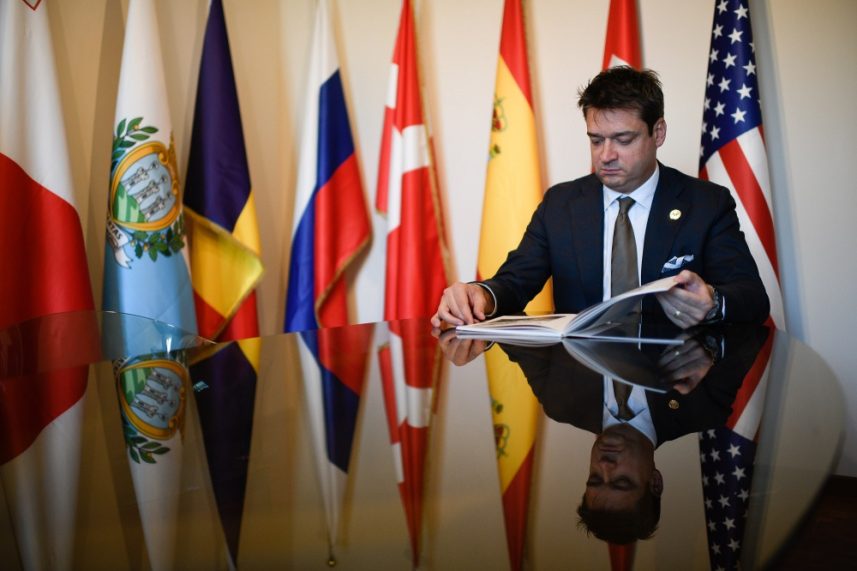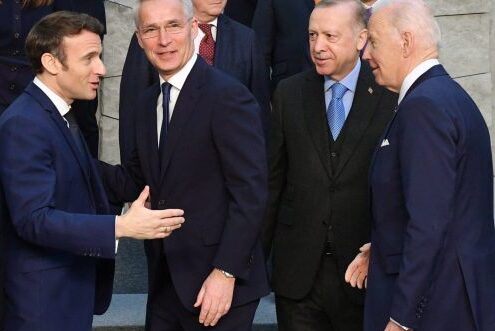(by Paolo Giordani) Almost 100 days after the start of what Moscow calls a "special military operation" (the post-Soviet version of the British understatement almost always has ironic implications), the hypothesis of a ceasefire in Ukraine and the launch of "serious" negotiations still appears remote, for various reasons.
The first and most evident is that not only the direct contenders, Russia e Ukraine, but also the United States , China, they think that advantages can still be obtained from the battlefield: political, for when "serious" negotiations will finally open, or geopolitical ones, in view of the global reorganization that this war (we call things by their name) will inevitably follow. The second is theabsence of a credible mediator.
A Putin and its entourage, now that the short-term objectives have been redefined and that the military errors of the first phase have been remedied, it seems convenient at least to complete the operation Donbass and try to tighten the pincer to the south, towards Mykolaiv e Odessa, to reach the Transnistria.
In Moscow there are also those who dream of being able to return to the initial idea: "leave to the Ukrainians only Galicia and Volhynia and create a new federated entity, the “Novorossija", There New Russia. Dreams, in fact. Zelensky and the American and British "hawks", on the other hand, focus on the supply of new and more powerful weapons, including fighters disassembled and reassembled on site, (not medium-range missiles, President Biden said yesterday), to increase the difficulties of the Russian army and possibly reverse the course of the conflict or in any case force Putin to give more mild advice.
The United States, however careful to avoid nuclear escalation, regains hegemony in Europe (neglected by Trump), obtains the unexpected re-consolidation and even theenlargement of NATO (at the cost of inevitable concessions to Erdogan's Turkey), the possibility of significantly weakening Russia.
For the China, titan of international trade, this immediate war is a nuisance, but it has the advantage of forcing the United States, despite Biden's diplomatic efforts in the Indo-Pacific sector, to focus "medio tempore" on the European theater, to give new impulse to that alternative economic-financial architecture to the dollar which Xi Jin Ping has been working on for some time and to definitively hand over to the Asian giant a powerful ally, but no longer hegemon: a sensational inversion of the balance of power compared to the Soviet era.
Who has the greatest interest in taking action for the ceasefire and the opening of "real" negotiations?
Erdogan's Turkey, a member of the Atlantic Alliance that moves autonomously, aims to create a modern re-edition of the Ottoman Empire and therefore it must be able to be accredited as an emerging power in the area: what better opportunity than mediating between the two fighters? Europe, which is the most penalized by the conflict, would also have an interest in taking action. But at this point we must ask ourselves: which Europe should take the initiative? Not so much the countries of the former Soviet or Baltic East, which in the Russian Federation have always seen and still see, even more so after February 24, an uncomfortable and threatening neighbor, and who now Boris Johnson would like to lure in some kind of "Holy alliance" a little anti-Russian and a little anti-European Union. It would have an interest in activating the historical nucleus of the Eurwestern countries - Germany, France, Italy - that with the Soviet Union first and with the Russian Federation later they had found a modus vivendi in the name of Realpolitik and common interests objectives (including, let's face it, the integration between producers and consumers of raw materials).
In fact Macron, Scholz and finally also Draghi something they have fielded, recording progress in the "grain diplomacy". With great difficulty, because there is and always will be a fundamental difference between the aggressor and the attacked. But in some cases, not being resourceful enough can be costly. Around the corner, in the new global order, there is the risk that old Europe, if possible, counts even less than today. It is essential that theUe - always grown whenever it has had to overcome internal and external crisis situations - rediscover unity and take the opportunity offered to you by this particular moment, to unfold all your potential and give shape to an effective, and not just declaimed, common foreign and security policy.

